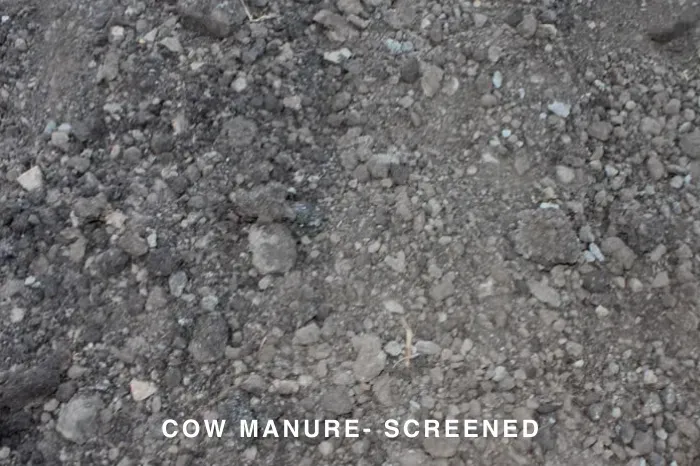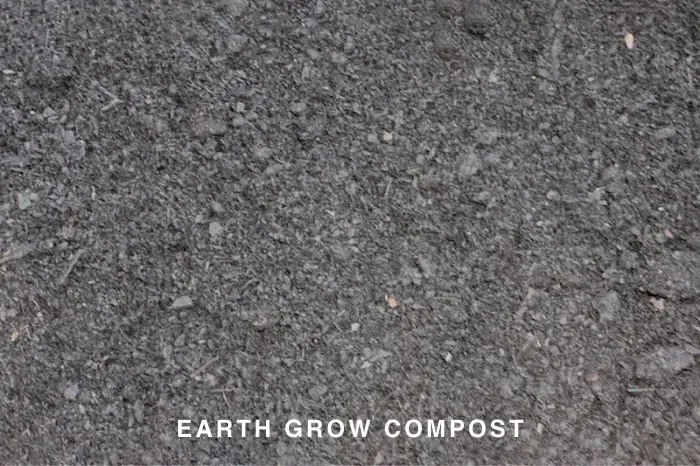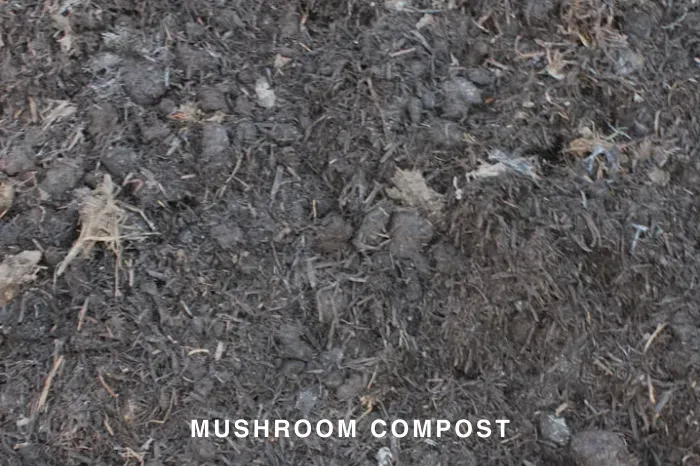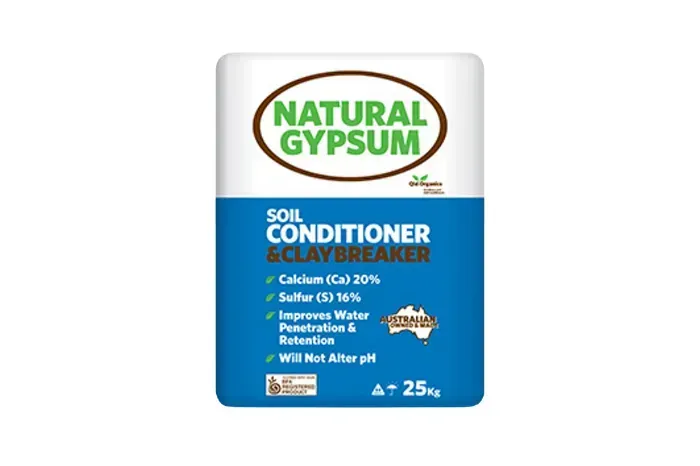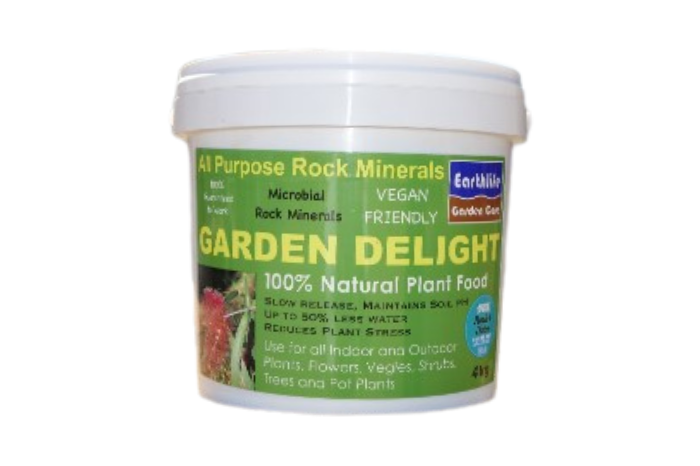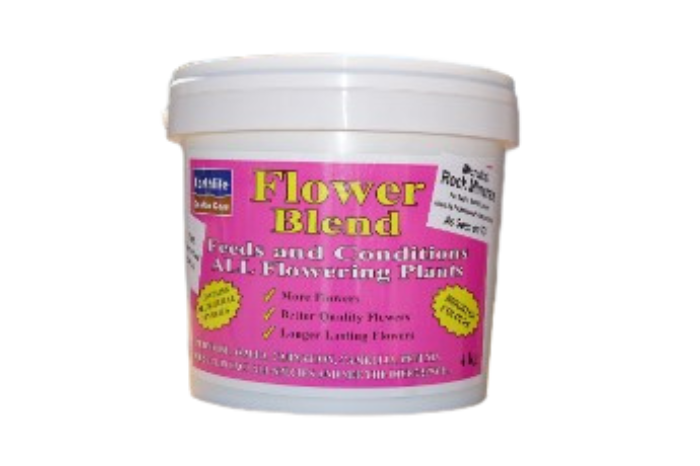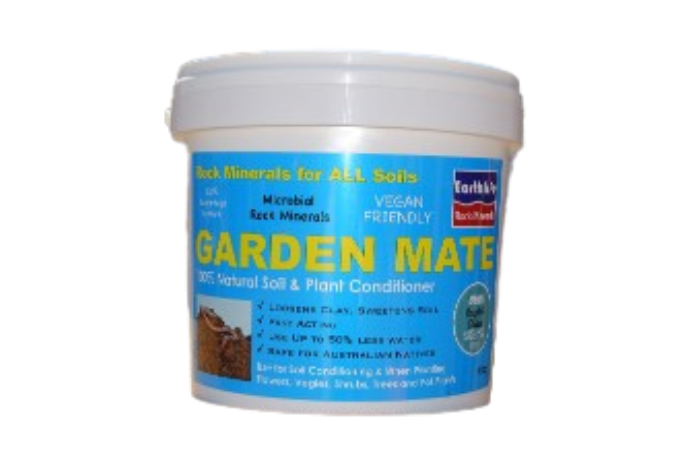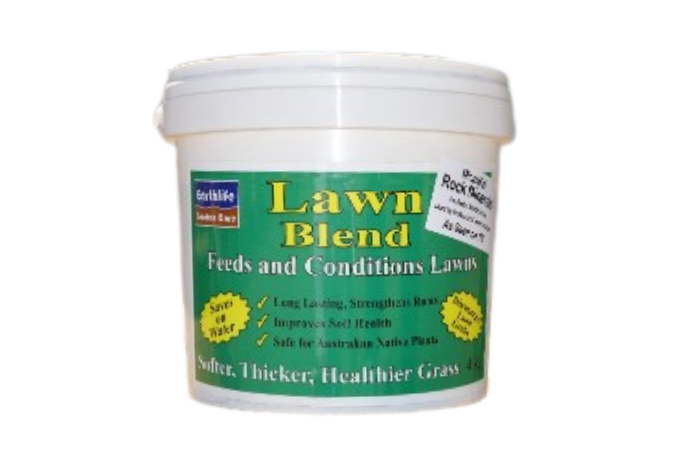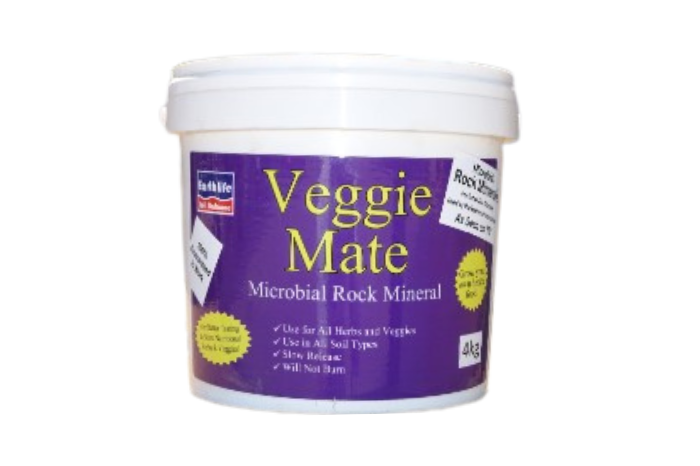Soil Improvers & Compost
Want to give your soil a little extra love? Our soil improvers and compost are here to help. Packed with nutrients and organic goodness, they’ll transform your garden into a thriving, healthy space.
From rich compost blends to natural gypsum and cow manure, we’ve got everything to improve soil structure and help your plants grow stronger. Dive into our range and find the perfect product to give your garden the boost it deserves!
COW MANURE - 15mm SCREENED
Animal manure is high in nutrients and adds organic matter to the soil. Cow manure decays more slowly than horse or poultry manure as it has a lower nitrogen release rate. Consequently it provides a source of nutrition for longer. Cow manure can be placed on the garden surface or dug lightly into the top 10 to 20 mm of topsoil. It is a finely screened product sourced from feedlots so weed seeds are not a problem. (Please note: we do not recommend using as a top dressing, due to small stones that may be in the product)
EARTH GROW COMPOST
A dark composted blend of aged bark fines, blood and bone, cow manure, sawdust and aged bagasse to organically enrich your soil. When incorporated with poorly structured clay soils it adds vital nutrients, encourages earthworm activity and stimulates plant growth by improving drainage, aeration and soil water retention. It is pH neutral and has a low nitrogen draw down index. It can be added to existing garden beds to fertilise, dug into clay to improve its structure or blended into sandy loam to add body.
MUSHROOM COMPOST
Mushroom compost is a fine textured mulch that is an effective source of natural compost for conditioning your soil. It usually consists of straw, chicken manure, gypsum, urea and molasses. It is ideal for applying as the bottom layer for carbon rich mulches such as woodchip or straw. You can choose to spread the compost on the soil surface, or incorporate it into the top 100 to 300 mm of the soil. It is important to initially water the area applied well as mushroom compost stores up to 70% of its own weight in water. It's terrific around all plant except camellias, rhododendrons and other plants that like acidic conditions, as it is a little alkaline.
QLD ORGANICS - NATURAL GYPSUM
Gypsum is a fine crystalline mineral (crushed rock) that greatly improves the structure of clay soil by causing the clay particles to coagulate. This thereby facilitates drainage and movement of air through the soil. Gypsum has little effect on soil pH however it may make an alkaline soil slightly more acidic. Apply to the surface of the soil (or gently fork into the soil) approximately 1 litre (1 kg) per square metre. It is a particularly effective way to correct calcium deficiency in alkaline soil and helps to neutralize excessive soil sodium and magnesium.
Earth Life Products
What is it?
A complete lawn conditioner and fertiliser, containing minerals, trace elements, available silica and soil friendly microbes.
What does it do?
- From seed: Lawn Blend applied and incorporated one week prior to seeding will create the ideal environment for seed germination. Also promotes a healthier, more robust root system and stronger thicker leaf growth.
- Newly laid turf: Encourages new root growth and reduces the period of stress. This increases your lawns’ ability to withstand adverse conditions and heavy foot traffic. Also encourages earthworm activity within the root zone, which enhances nutrient availability. Discourages the presence of lawn grubs.
- Lawn maintenance: Feeds and conditions established lawns, whilst promoting increased lateral growth. Less water will be required to keep your lawn looking fresh and healthy.
Where and when to use it?
- Existing lawns: Top-dress as required for that healthy fresh look.
- Newly laid turf: Extremely beneficial when spread immediately under newly laid turf and on top of the base material.
How often do you use it?
3 times per year minimum, or as often as necessary.
Application Rates:
- Seed lawns: 50gm/m2 (half a handful approx)
- Newly laid turf: Minimum 100gm/m2 (1 handful approx)
- All existing lawns: Minimum 100gm/m2 (1 handful approx)
- Problem areas: Minimum 150gm/m2 (One to two handfuls approx) alternatively, aerate and apply Garden Mate first (min. 300 gm/m2)
Coverage Areas:
- 20kg covers up to 200m2 @ 100gm/m2
- 40kg covers up to 400m2 @ 100gm/m2
Other Important Information:
Ideal for use in other areas of the garden. Contains a balanced blend of fertiliser (including a non leachable natural phosphate), minerals and trace elements that are important in the establishment & maintenance of healthy lawns. Adjusts and maintains soil pH at the correct level. Safe for Australian native plants.
What is it?
A Flower and Plant Conditioner containing Nitrogen, Natural Phosphate, Potassium, Sulphate, Calcium, Magnesium, Iron, Zinc, Copper, Boron, plant available silica, minerals and other trace elements and beneficial soil micro-flora.
What does it do?
- Planting: Promotes a more robust, healthier root system, which delays petal fall and allows the plant to better withstand adverse conditions.
- Nutrients: Provides a balance of nutrients as required by flowering plants. This improves the depth of colour and quality of the flowers while enhancing the keeping qualities after picking.
Where and when to use it?
In the preparation of all flower beds, at planting and around all established plants. Flower Blend has been made to enhance the flowering potential of all plants.
How often do you use it?
- Before Planting: in bed preparation.
- At Planting: in the planting hole.
- Established Plants: Generally, apply every 8 weeks until plant ceases to flower. When perennials have ceased to flower, reapply when plants are pruned, then every 8 weeks till flowering ceases.
Application Rates
- Flower Bed Preparation: Apply 300 grams (3 handfuls) of Flower Blend over one square metre and lightly work into the soil and water, or alternatively combine with Garden Mate.
- At Planting: Place 25 grams (one tablespoon) in the hole for every 5cm diameter of the hole. (Example: width of hole is 15cm, use 3 tablespoons) or alternatively combine 50/50 with Garden Mate. Apply 300 grams (3 handfuls) of Flower Blend over one square metre after backfilling and water-in thoroughly.
- Established plants: Apply 300 grams per square metre
Other Important Information:
Does not contain Muriate of Potash, Urea or Super Phosphate. Will not burn plant foliage or root hairs. Maintains pH level longer. Best response, when spread on the soil and lightly raked, then watered-in thoroughly. Safe for Australian native plants.
Typical Analysis of Flower Blend:
- Nitrogen: % 1.5
- Phosphate: % 2.5
- Potassium: % 2.7
- Calcium: % 13.5
- Magnesium: % 3.5
- Silica: % 28.0
- Sulphur: % 2.0
Plus Copper, Zinc, Boron, Iron and other Trace and Ultra Trace Elements
What is it?
A 100% natural* Garden Soil and Plant Conditioner containing plant available silica, minerals, trace elements and garden friendly microbes.
What does it do?
- Planting: Promotes a healthier, more robust root system and stronger thicker stem growth on all plants. This allows plants to withstand adverse conditions.
- Nutrients: Also encourages earthworm activity within the root zone, which enhances nutrient availability.
- Clay Soils: Loosens heavy clay soils. Provides better moisture penetration, softer soil, improves drainage and nutrient availability.
- Sandy Soils: Binds sand particles together in sandy soils which reduces nutrient leaching and improves moisture availability.
Where and when to use it?
All existing gardens, trees, pot plants, lawns and new gardens. Extremely beneficial when planting or transplanting all plants. All plants when re-potting.
How often do you use it?
Generally every 4 to 6 months. As often as necessary.
Application Rates:
- Problem soils or areas: Minimum 500gm/m2 (5 handfuls approx)
- Most planting situations: 300gm/m2 (3 handfuls approx)
- General Conditioning: 100gm/m2 (1 handful approx)
- Re-potting: 25 grams per litre of potting mix (1 tablespoon)
Other Important Information:
Contains all natural* ingredients including plant available silica and natural phosphate. Safe for use on Australian native plants. Work into the soil for faster results. Can be spread over mulch, bark etc. Will not burn plant foliage or root hairs. Maintains soil pH level longer.
Typical Analysis of Garden Mate:
- Phosphate: % 1.4
- Potassium: % 1.1
- Calcium: % 13.0
- Magnesium: % 3.7
- Silica: % 36.0
- Iron: % 3.0
- Sulphur: % 1.0
Plus Trace and Ultra Trace Elements. *Garden Mate is an allowable input for organic growers.
What is it?
A complete lawn conditioner and fertiliser, containing minerals, trace elements, available silica and soil friendly microbes.
What does it do?
- From seed: Lawn Blend applied and incorporated one week prior to seeding will create the ideal environment for seed germination. Also promotes a healthier, more robust root system and stronger thicker leaf growth.
- Newly laid turf: Encourages new root growth and reduces the period of stress. This increases your lawns’ ability to withstand adverse conditions and heavy foot traffic. Also encourages earthworm activity within the root zone, which enhances nutrient availability. Discourages the presence of lawn grubs.
- Lawn maintenance: Feeds and conditions established lawns, whilst promoting increased lateral growth. Less water will be required to keep your lawn looking fresh and healthy.
Where and when to use it?
- Existing lawns: Top-dress as required for that healthy fresh look.
- Newly laid turf: Extremely beneficial when spread immediately under newly laid turf and on top of the base material.
How often do you use it?
3 times per year minimum, or as often as necessary.
Application Rates:
- Seed lawns: 50gm/m2 (half a handful approx)
- Newly laid turf: Minimum 100gm/m2 (1 handful approx)
- All existing lawns: Minimum 100gm/m2 (1 handful approx)
- Problem areas: Minimum 150gm/m2 (One to two handfuls approx) alternatively, aerate and apply Garden Mate first (min. 300 gm/m2)
Coverage Areas:
- 20kg: covers up to 200m2 @ 100gm/m2.
- 40kg: covers up to 400m2 @ 100gm/m2
Other Important Information:
Ideal for use in other areas of the garden. Contains a balanced blend of fertiliser (including a non leachable natural phosphate), minerals and trace elements that are important in the establishment & maintenance of healthy lawns. Adjusts and maintains soil pH at the correct level. Safe for Australian native plants.
What is it?
A 100% natural plant food containing plant-available silica, minerals, trace elements and organic material. This contaminant-free formula contains no manures, blood and bone or synthetic fertilisers, making it completely safe for native plants including Proteaceae.
What does it do?
- Improves soil quality for healthier native plants
- Helps plants establish faster with stronger roots
- Reduces water requirements
- Increases resistance to pests, diseases and adverse conditions
- Promotes better flowering
- Encourages earthworm activity in soil
Where and when to use it?
- Preparing new native gardens
- Maintaining existing native or mixed gardens
- Planting - use in the bottom of holes
- Potting and repotting native plants
- Revegetation projects
How often do you use it?
On Proteaceae (Grevillea, Banksia) use it every 3 months for first 12 months, then 1-2 times per year. On all other natives use it every 3-4 months
Application rates:
- Planting: 300g/m² (about 3 handfuls) worked into soil
- Existing gardens: 100g/m² (about 1 handful) sprinkled around plants
- Pots: 25g per litre of potting mix
Coverage Areas:
- 1kg bag covers 10m² at planting rate
- 5kg bag covers 50m² at planting rate
Other important information:
This certified organic formula is completely contaminant-free, containing no chemicals or animal byproducts, making it safe for all native plants including sensitive Proteaceae species. Its natural rock phosphate composition promotes healthy growth without risk of root or foliage burn. Perfect for all soil types and container gardening, it significantly reduces transplant shock while encouraging biodiversity by creating a wildlife-friendly environment. Whether you're establishing new plantings or maintaining existing gardens, this versatile product delivers consistent results.
What is it?
A 100% natural plant food containing plant available silica, minerals, trace elements, organic material and garden friendly microbes. (Does not contain animal waste eg. Manures)
What does it do?
Promotes healthier vegetables/herbs, more able to withstand adverse conditions. Encourages earthworm activity.
Where and when to use it?
In the preparation of all new and existing vegetable gardens. Gives excellent results especially when used in the preparation of the vegetable bed and in the planting hole.
How often do you use it?
- Leaf vegetables: every 2-3 months.
- Fruiting vegetables: eg; tomato, brassicas, every 3-4 weeks.
- Also use Fruit Blend @ 100-200 Grams/M2. (1-2 handfuls) every 3-4 weeks. As often as necessary.
Application Rates:
- General fertilising: 600gm/m2 (6 handfuls)
- Most planting situations: 600gm/m2 (6 handfuls)
- Transplanting situations: Add teaspoon to each planting hole
- Problem soil or areas: 800gm/m2 minimum (8 handfuls)
Coverage Areas:
- 15kg – up to 25m2 @ 600gm/m2
Other Important Information:
Contains all natural ingredients including plant available silica and natural phosphate. Safe for use on all types of vegetables and herbs. Does not contain any animal waste products. Gives quicker results when worked into the soil. Can be spread over existing vegetables and watered in. Will not burn plant foliage or roots. Veggie Mate is natural vegetable nutrition of the highest quality

